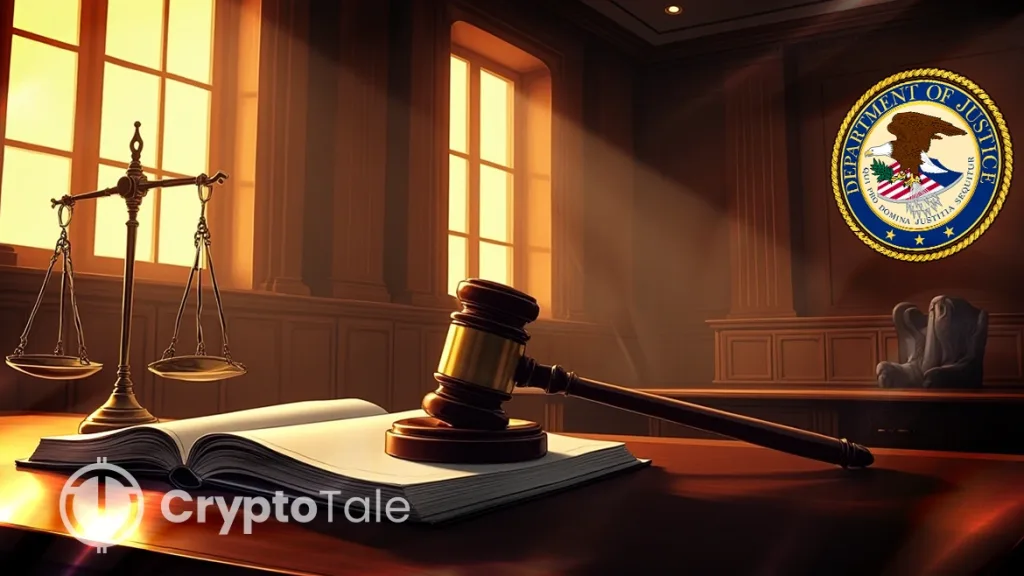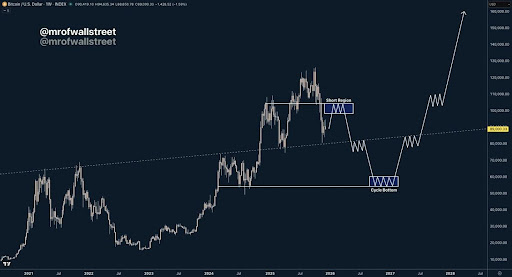DOJ Says DeFi Coders Are Safe Without Criminal Intent

- DOJ confirms that DeFi coding without intent to commit a crime is not punishable by law.
- Developers welcome clarity as enforcement retreats and new crypto projects gain space.
- Critics warn that weak oversight could trigger fraud and risky behavior in DeFi markets.
The U.S. Department of Justice confirmed it will not target developers who publish open-source decentralized finance code without criminal intent. Acting Assistant Attorney General Matthew Galeotti stated at a Wyoming crypto summit that “merely writing code, without ill intent, is not a crime.” His remarks signaled a clear shift from previous enforcement, where developers risked prosecution for failure to register as money transmitters.
Money transmitters like Western Union, PayPal, and Venmo require licenses and must vet customers while reporting suspicious transactions to prevent money laundering. Galeotti clarified that developers who contribute to open-source projects without intent to aid criminal activity, abet crimes, or join conspiracies are not criminally liable. This position distinguishes software creation from the unlawful use of software, setting new boundaries for accountability.
Furthermore, the DOJ’s disbandment of its National Cryptocurrency Enforcement Team spells a retreat from the then-aggressive approaches targeting the crypto industry. The April 2025 memo issued by Deputy Attorney General Todd Blanche, titled Ending Regulation by Prosecution, stated that the department would focus on prosecuting high-impact criminal conduct, such as investor fraud and illicit finance, rather than governing neutral developments.
Impact of Shifting Enforcement
Developers now see a pathway to build new platforms and protocols without facing criminal liability for simply writing code. This ruling is viewed as cutting through legal uncertainty that has long hindered the broader growth of DeFi. The development was warmly welcomed by the advocacy groups and industry leaders. Katie Biber, chief legal officer at Paradigm, described the statement as “an emphatic” removal of doubt for developers.
Industry coalitions have also challenged the application of money-transmission rules to open-source code, comparing such actions to prosecuting a frying-pan maker for its use. Their position gained weight as the DOJ pulled back from using transmission laws to pursue developers. This adjustment reflects the administration’s broader pro-crypto tone, reinforced by President Donald Trump’s return to the White House.
Related: DOJ Backs Off Dragonfly Probe in Tornado Cash Case
Debate Over Risks Ahead
Will the DOJ’s stance empower innovation or leave markets open to unchecked fraud? Critics say the removal of criminal enforcement might enable pump-and-dump schemes and manipulative trading practices, thereby exposing retail investors to these risks. Without some sort of specialized enforcement arm, the fraudulent projects would get a leg up in their race to float.
Civil regulators such as the SEC and CFTC can still step in if the case involves a securities law violation or investor protection. This means that oversight may shift in form but will not disappear. While developers would be shielded from criminal prosecution without intent, enforcement would still apply in cases where fraud or willful misconduct is established.
Observers point to ongoing prosecutions as proof. The Southern District of New York has pressed forward with cases involving Tornado Cash’s Roman Storm and Samourai Wallet’s developers. Those prosecutions illustrate that while intent remains the dividing line, legal consequences remain for those linked to financial crimes.
The DOJ’s evolving approach reflects a turning point. Developers may now innovate with greater certainty, yet regulators and consumer advocates warn that risks could rise. The future of DeFi innovation may depend on whether clarity brings safe growth or fuels harmful activity.
Disclaimer: The content of this article solely reflects the author's opinion and does not represent the platform in any capacity. This article is not intended to serve as a reference for making investment decisions.
You may also like
OpenSea Integrates Gaming Token POWER for NFT Marketplace Payments
Quantum Computing Bitcoin: Michael Saylor’s Powerful Vision for an Unbreakable Future

1.18 Billion XRP In Four Weeks. Here’s What Whales Are Doing
